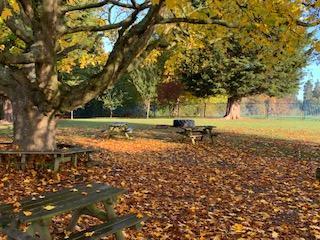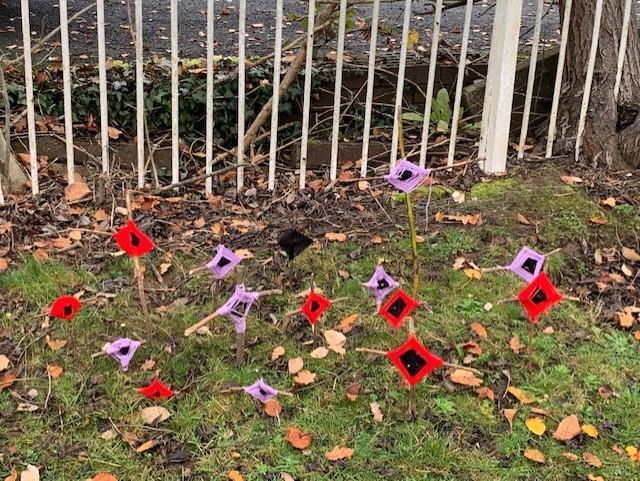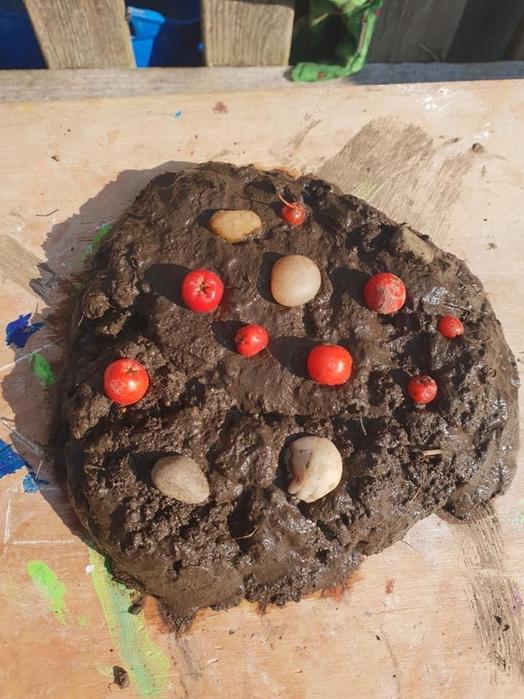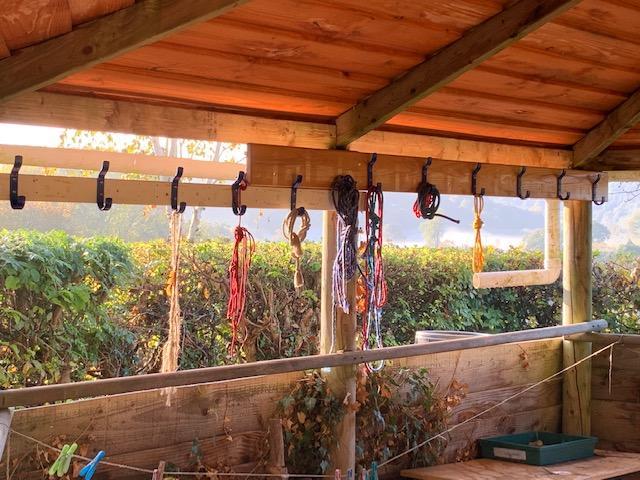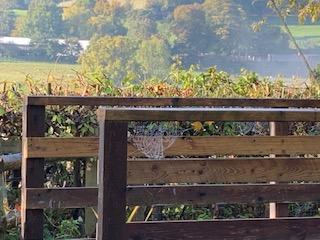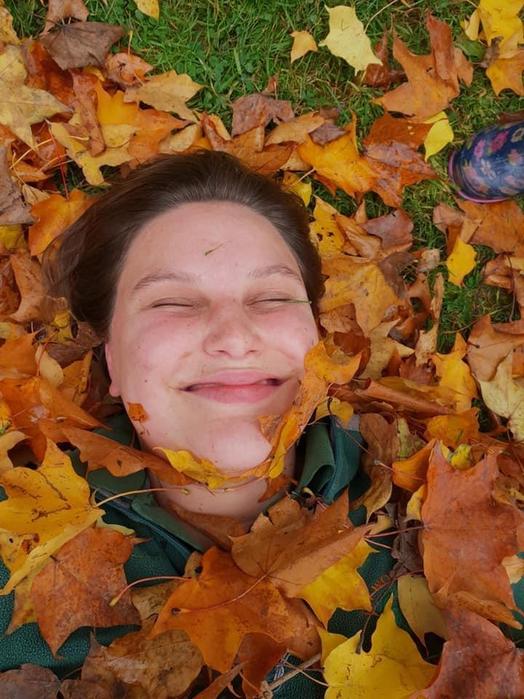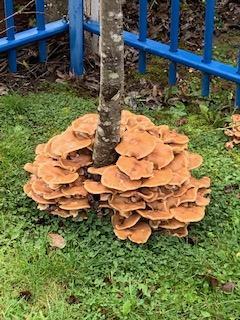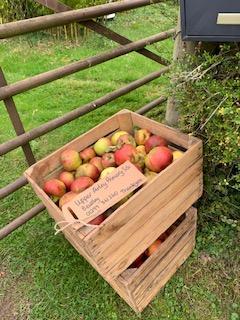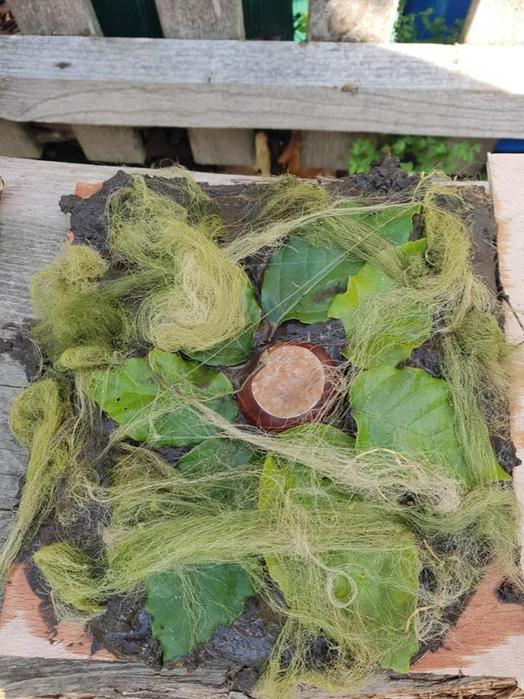Forest School at Upper Arley Primary School
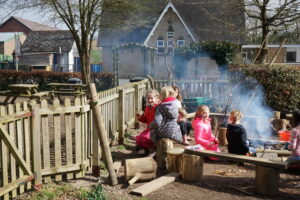
Forest school at Upper Arley is a regular part of the curriculum with every class spending at least 2 hours a week participating in a session throughout the full school year.
Since the Forest School sessions started at Upper Arley at the beginning of 2020, we have seen the amazing benefits of these sessions. The children have become more focused, not only in the forest school sessions, but within their classroom environment. The children are working together as a team and their friendship groups have widened. Children that may not naturally excel in the classroom have found a niche where they can demonstrate what they are capable of. The children’s faith in what they can achieve by themselves practically, using common sense and in their physical ability, has flourished.
What is Forest School?
Forest School is a child-centred inspirational learning process that offers opportunities for holistic growth through regular sessions. Based on 6 principles, it is a long-term program that supports play, exploration and supported risk taking. Forest school allows everyone, particularly children and young people the opportunity to learn through experience within a natural setting in a hands-on manner to develop their self-esteem and confidence.
Forest School helps to develop
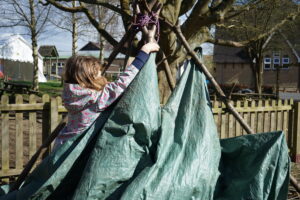
- Children’s confidence and self-esteem
- Skills to communication and socialise appropriately
- physical life skills that support survival and independence
- a greater understanding and awareness of the natural environment
- a natural motivation and positive attitude to learning
- the ability to recognise and manage risks
- a healthier lifestyle and outlook to life
Forest School Philosophy
The philosophy of Forest Schools is to inspire individuals of any age through positive outdoor experiences and provide them an opportunity to appreciate the wider, natural world to encourage a responsibility for nature conservation in later life.
Forest School Aims
- To provide an opportunity for individuals to develop skills, to learn and to enjoy themselves.
- To provide a safe and non-threatening environment in which children can take risks, make choices, and initiate their own learning.
- To help children understand, appreciate and care for the natural environment.
- To provide ways of developing practical life skills in an outdoor environment.
- To develop self-esteem, confidence and a positive disposition to learning through the completion of small, achievable tasks.
- To meet the needs of children with all learning styles.
- To develop social and team working skills.
- To enable children to be independent, self-motivated and considerate of others.
- To be true to the forest school ethos and approach
- To develop a secure, happy and welcoming environment.
- To provide stimulation and varied learning activities appropriate to the child’s needs and stages of development.
- To help each child build self-esteem, confidence, independence, self-control and interpersonal skills
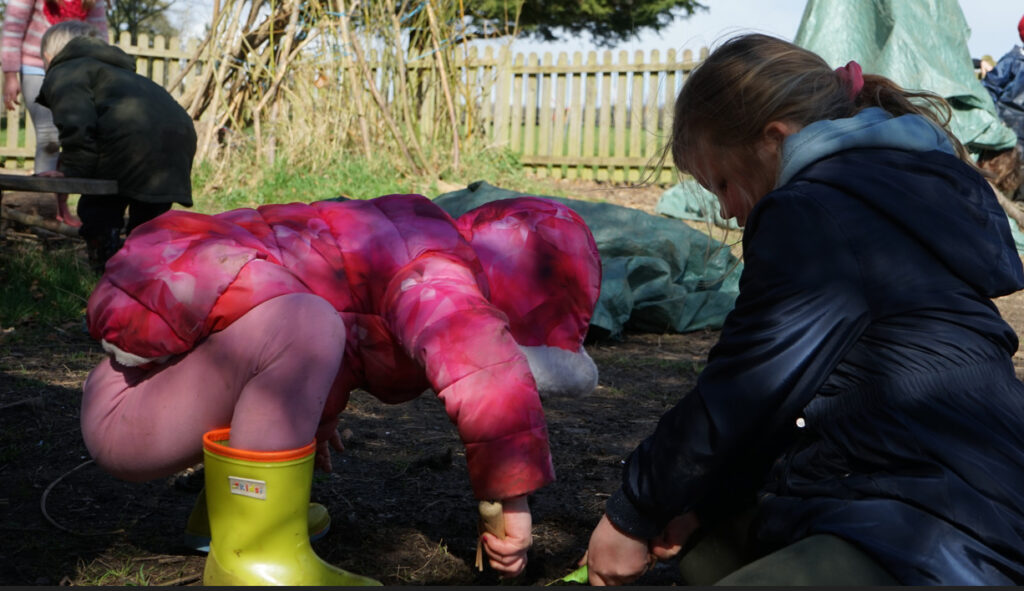
Keeping Warm at Forest School!
Dear Parents,
Thankfully we are able to continue with our forest school sessions through January and February, however these can be the coldest months for being outdoors.
To ensure your child has the best experience keeping warm is essential.
- Gloves, Your child will definitely need a pair of gloves and if you can put a spare pair in their bag in case one gets wet.
- A warm hat
- Layers of jumpers/ long sleeved tops/ fleece tops. (at the moment I have about 4 layers on as well as my thick coat!)
- A warm coat preferably water proof.
- Waterproof trousers, if possible, these help keep out the wind as well as keep your child dry.
- Preferably a walking boots or something similar if not wellies ( a size or too large so they can fit in at least two pairs of socks)
- Socks: On Forest School days, could you please ensure that your child has with them at least one pair of extra socks, especially if they have wellies. Hiking boots or something similar tend to keep toes warmer, but still need two pairs of thick socks.
With keeping warm outdoors, layers are the key as they trap warm air, especially when it comes to toes!
How do we know Forest School is important for children’s development?
Forest School Report – Forestry Commission.pdf


